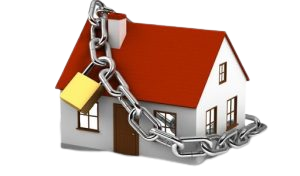Hackers know where the weak link is to get access to corporate data—the home network

The new work-from-home workforce is a very enticing target for today’s cybercriminals.
These hackers know where the weak link is to get access to corporate data—the home network. A proper, business-class firewall will help close that gap and keep things secure.
If you do not care to spend that kind of cash (or if the machine the staff member uses from home is a personal machine), you can “up your game” by changing the name and preset passphrase of your router. Use things that are unique to you and that will not be easily guessed by someone else. You can usually find out how to do so by searching online for the model name/number of your current router. Also, be sure to set up a separate wireless network for the router to be used by guests…with a separate passcode.
Other ways to further protect yourself include the basics that any security-minded business implements: ensure all machines are updated regularly by remote download, have an adequate backup running regularly with a retention period to fit your needs, only shop on sites that show https: to indicate security, and finally, never plug any unknown devices into any home machine…or at least scan them first to ensure they are safe.
What Does IT Radix Recommend?
We recommend that organizations with a hybrid work environment with “in-office” and “work-from-home” schedules for staff do the following to further secure their data, networks and business:
- Implement Next Generation Anti-Virus. This goes far beyond just protecting you from a nefarious download. Rather, it leverages artificial intelligence learned/predictive behavior using algorithms to ensure that known and unknown threats can be anticipated and immediately prevented.
- Application Whitelisting. Rather than reviewing applications that might enter a network/PC and looking for bad traits in any software, whitelisting does the opposite. It allows only pre-approved applications to run on a machine. This is the NO-TRUST approach and certainly ups your game.
The two items above are fast becoming the norm expectations for any organization with more than 25 staff, regardless of where they work—in office or at home. Cyberliability insurers are requiring these new practices as a way to reduce threats and risks.
What are YOUR Home Network Security Risks?
Think about all the devices you have connected to your home network—TVs, game consoles, doorbells, lights, thermostats, and the list goes on. Any of these devices could be an entry point into your home network and, in a work-from-home environment, your office. A firewall will not only help secure these devices but would allow you to separate your work environment from the rest of your home, helping keep your office and company private data secure.
So, maybe your next home improvement project should not be a new floor in the mud room. Maybe it should be some added network security. Not sure where to start…contact IT Radix today.
